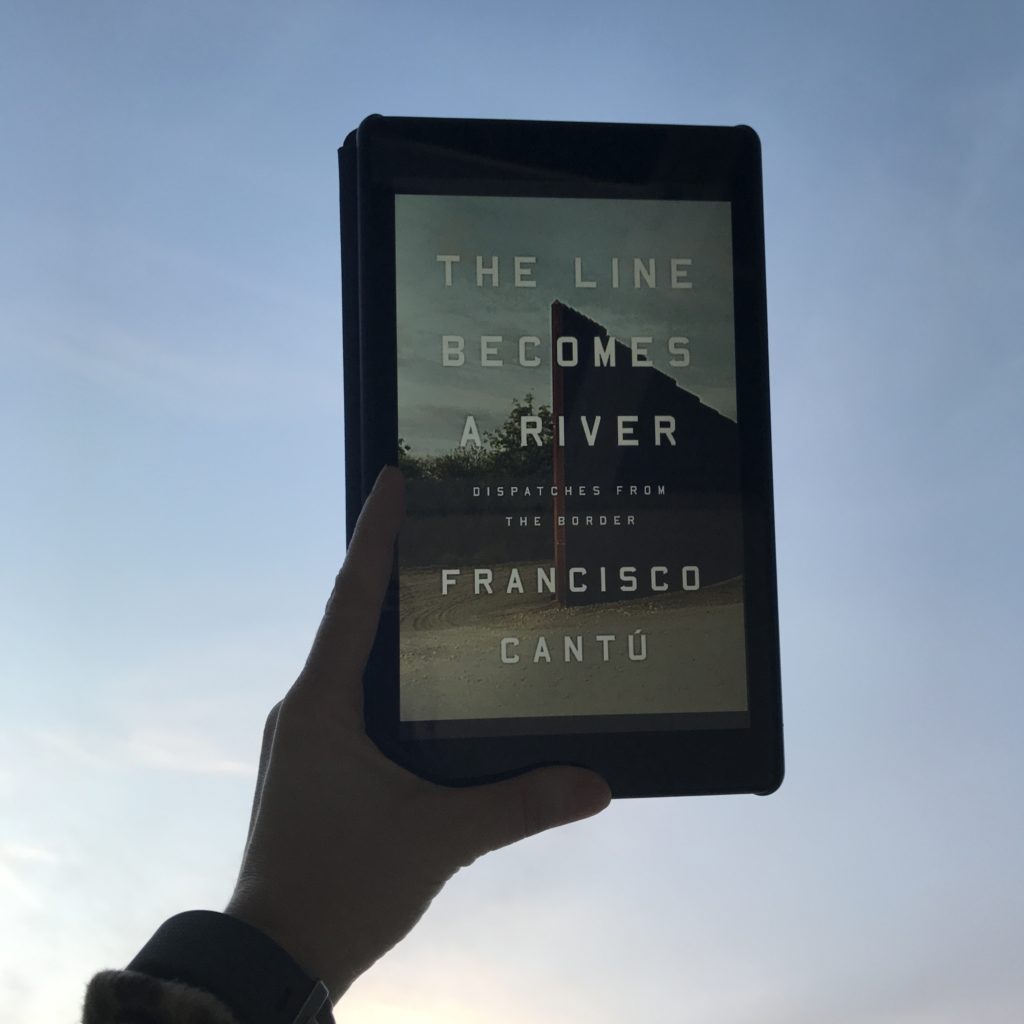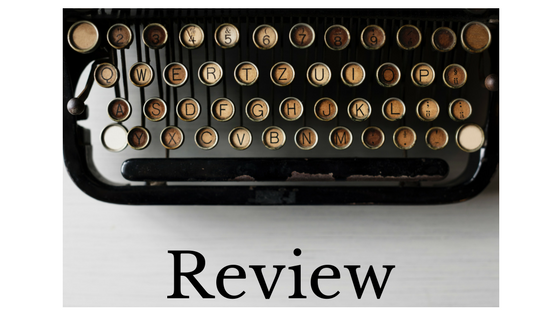Synopsis
The Line Becomes A River is a memoir of Francisco Cantu’s short time with the border patrol, both as a boots-on-the-ground agent and as an intelligence officer. In the years after he left, Cantu befriended an undocumented man and his family—the last third of the book is the story of his interactions with them and the immigration system. Peppered throughout the memoir are policy and historical vignettes about the border.
 Conflict
Conflict
I am having a hard time deciding how I feel about The Line Becomes a River. Before I read it, I knew that activists had disrupted his planned appearance at BookPeople in Austin, protesting his making money off of his experience in the Border Patrol tearing families apart. The impression I had from the article was that at least some of these people hadn’t read the book and were protesting the fact that he had participated in the Border Patrol at all, destroying families and being complicit in the system that has caused thousands of deaths of individuals trying to cross in the deserts at the hands of unscrupulous coyotes. I get this criticism but if individuals who participated in the Border Patrol are not allowed to tell their stories (which would seem to be the logical end of this argument), then we never hear from an entire side of people about what’s going on in on the ground in one of the most contentious, debated places in this country. Having read The Line Becomes a River and listened to how Cantu was unable to continue his work, how he was not able to keep participating in this system, I am less concerned with protesting this aspect of the book.
My biggest concern with this book—and the one that makes me say this is either a four-star read or a one-star read—is that the entire last third of the book tells the story of Cantu’s friend Jose—but I have no idea whether Cantu had permission to tell this story. After leaving the Border Patrol, Cantu works at a coffee shop while studying for his maters degree and befriends a man named Jose Martinez. Jose is undocumented, though he has been in the country long enough to benefit from deferred action against him if he doesn’t leave…except his mother living in Mexico is dying so he does what any family man would do and he leaves. His is apprehended on his way back and Cantu throws himself into trying to help Jose with an immigration claim, including long trips to take Jose’s sons to see him in detention. During this section, Cantu reads from letters submitted by Jose’s friends and family as part of his immigration claim. It was at this point that serious questions arose for me as to whether Cantu had permission to tell this story. While it would be an invasion of Jose’s privacy to tell some of this story before this point, Cantu was speaking of his own experience, of things within his own knowledge. When he begins to read the letters, the only way Cantu could do this is if he copied them, intending them for this kind of use since the letters intended recipient was the immigration judge and its not clear Cantu had permission to read them, much less copy and reproduce them in a book he will benefit monetarily from. I have searched and cannot find the answer, though the fact that Cantu is silent in his thanks and afterward about Jose makes me worry he did not have permission. If anyone can find this answer, I’d love to be able to settle on how I feel about this book.
But Four Stars?
From a purely literary standpoint, the book is marvelously done. I listened to the audio, read by the author. While I can’t recommend him for a second career as an audiobook performer, he did well with his book—lending weight where he wanted it, though the reading was a bit more halting than polished at points. He intersperses his narrative with facts and vignettes from social science studies, providing historical and policy frames of reference for his personal experience. He is a masterful writer of his own experience—his writing is simultaneously beautiful and haunting in places while also being relatable, even for someone who has no personal experience of any kind with the border. It is like nothing else I have ever read and it feels like a necessary read for a layperson trying to understand the border debates.
Morality and Solutions
At its heart, The Line Becomes a River is a memoir—Cantu doesn’t claim to be making wide-reaching arguments about the Border Patrol or immigration policy and enforcement except to be saying that the system doesn’t work—an argument that anyone can agree with (albeit for different reasons) regardless of your place on the political spectrum. As with any police force, the Border Patrol pulls people who want to be kind and fair (Cantu paints himself this way) as well as the bad apples who lean toward the sadistic, and the full-range of the spectrum in between. Indeed, embedded within Cantu’s narrative here are confessions of cruelties that even he commits—destroying caches of migrants’ water and food so that when they return for their water in the blistering, deathly desert, they will find none and be motivated to turn themselves in. Glossed over here is the equally likely choice they will make to press on—desperate people do desperate things and no one crosses the border in a desert without desperation driving them.
As someone who lives in Texas, the border debates feel literally close to home. Living in Austin (the blueberry in the tomato soup, if you’re inclined to gross culinary metaphors), the political bent I’m exposed to tends towards the more liberal. I have clients who will be impacted by the loss of DACA and know people who were at one time illegally in this country. There is a fierce debate raging over the treatment of a detainee who has been sexually assaulted at a detention center approximately thirty minutes from here. In this sense, my only frustration is that Cantu doesn’t go farther in his book and suggest a solution. This is laudable on the one hand, since The Line Becomes a River doesn’t become Hillbilly Elegy with its gross over-allegories. On the other hand, the I want a solution. I don’t know that I want an up-close version of both sides of the debate with no idea how to solve it.
Summary
Because it is not clear whether he had permission, it is hard for me not to feel like this book is, as the protestors at BookPeople alleged, exploitative. While I am not pro-Border Patrol in its current form, I think there is value in Cantu’s story of his experiences—how else do we learn what is really going on there if not from someone who was on the inside—especially someone who is able to see that what he did was not ethical. But here is the line for me—it is one thing for Cantu to be complicit in the system and write to expose that system. It is another to befriend a specific person and then exploit him to the extent Cantu does in the last third of his book if he did not have permission to tell this story. Where the macro exploitation seems excusable for the larger good of exposing this story, the micro hits too close to home for me to make excuses for Cantu as a writer. This ultimately isn’t a book I can recommend in good conscience without knowing the answer to whether Jose granted Cantu permission to share this intimate portrait of his life.
Notes
Published: February 6, 2018 by Riverhead Books (@riverheadbooks)
Author: Francisco Cantu
Date read: March 27, 2018
Rating:1 or 4 stars

